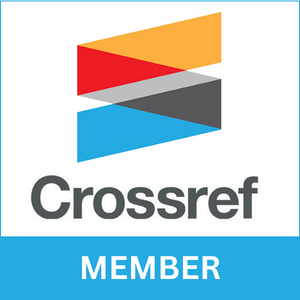Online gambling and non-payment of taxes in Ecuadorian territory [Apuestas en la red y la falta del pago de tributos en territorio ecuatoriano]
DOI:
https://doi.org/10.62574/5tqp6933Keywords:
tariffs, customs policy, international tradeAbstract
The tax sphere and the impact of new technologies have significantly transformed tax regulation models in Ecuador and the world. Accordingly, the objective of this study is to analyse online gambling and the lack of payment of taxes in Ecuadorian territory. This study was developed under a descriptive-documentary methodology. The digital and economic transformation in Ecuador has generated significant challenges for the tax system, evidencing the need for a more robust regulation that addresses e-commerce, online gambling and tax evasion. Despite advances in the implementation of technologies such as electronic invoicing and increasing attention to tax education, important challenges remain in adapting the regulatory framework to the new economic realities.
Downloads
References
Angulo-Moncayo, N. (2020). Ciberpolítica y ciberdemocracia. Una arqueología del prefijo ciber. Uru: Revista De Comunicación Y Cultura, (3), 17–29. https://doi.org/10.32719/6312514.2020.3.2
Barberan, N., Santillan, R., Bastidas, T., & Peña, M. (2022). Comportamiento tributario de microempresas en Ecuador. Revista Venezolana De Gerencia, 27(98), 666-679. https://doi.org/10.52080/rvgluz.27.98.18
Chávez-Mejía, M. B., & Andrade-Amoroso, R. P. (2024). Evaluación de estrategias de planificación fiscal para empresas del sector comercial en Ecuador [Evaluation of tax planning strategies for commercial sector companies in Ecuador]. Revista Multidisciplinaria Perspectivas Investigativas, 4(especial), 54–64. https://doi.org/10.62574/rmpi.v4iespecial.157
Echeverría-Silva, Carlos David, & Erazo-Álvarez, Juan Carlos. (2024). La Educación Fiscal: su impacto en la recaudación y el cumplimiento tributario. Conrado, 20(96), 167-181.
Fernández-Rincón, A. R. (2022). Jóvenes y publicidad de apuestas deportivas online. La experiencia española. Correspondencias & Análisis, 15, 107-128. https://doi.org/10.24265//cian.2022.n15.05
Guaranga-Chafla, J. L., Vargas-Adriano, J. E., Villacres-Mejia, J. A., & Berrones-Lluguay, G. N. (2023). Universidades y regulaciones tributarias: casas de apuestas y bienestar social. Revista Conrado, 19(S3), 94–102.
Mejía-Flores, O. G., Pino-Jordán, R., & Parrales-Choez, C. G. (2019). Políticas tributarias y la evasión fiscal en la República del Ecuador. Aproximación a un modelo teórico. Revista Venezolana De Gerencia, 24(88), 1147-1165. https://doi.org/10.37960/revista.v24i88.30169
Ortega-De-La-Cadena, E. S., & Nivela-Ortega, E. S. (2023). Regulación e implementación de incentivos tributarios en la actividad de comercio electrónico. IUSTITIA SOCIALIS, 8(3), 250–258. https://doi.org/10.35381/racji.v8i3.3021
Peña-Garnica, D. F., & Hernández-Albarracín, J. D. (2020). Entornos formativos y apuestas emergentes desde las tic: diseño de un simulador del mundo de la vida. Inclusión Y Desarrollo, 8(1), 158–174. https://doi.org/10.26620/uniminuto.inclusion.8.1.2021.158-174
Ramírez-Álvarez, José, Oliva, Nicolás, & Andino, Mauro. (2022). Cumplimiento tributario y facturación electrónica en ecuador: evaluación de impacto. Problemas del desarrollo, 53(208), 97-123. https://doi.org/10.22201/iiec.20078951e.2022.208.69712
Tixi-Janeta, S. G., Merizalde-Avilés, M. L., Romero-Fernández, A. J., & Jordán-Naranjo, G. V. (2023). Los delitos informáticos en el Código Orgánico Integral Penal ecuatoriano. IUSTITIA SOCIALIS, 8(1), 1610–1619. https://doi.org/10.35381/racji.v8i1.3339
Downloads
Published
Issue
Section
License
Copyright (c) 2024 Copyright (c) 2024 By the authors. This article is open access and distributed under the terms and conditions of the Creative Commons Attribution-NonCommercial-ShareAlike 4.0 International (CC BY-NC-SA 4.0) licence (https://creativecommons.org/licenses/by-nc-sa/4.0/).

This work is licensed under a Creative Commons Attribution-NonCommercial-ShareAlike 4.0 International License.
Esta obra está bajo una licencia internacional Creative Commons Atribución-NoComercial-CompartirIgual 4.0.
CC BY-NC-SA : Esta licencia permite a los reutilizadores distribuir, remezclar, adaptar y construir sobre el material en cualquier medio o formato solo con fines no comerciales, y solo siempre y cuando se dé la atribución al creador. Si remezcla, adapta o construye sobre el material, debe licenciar el material modificado bajo términos idénticos.
OAI-PMH URL: https://revistasinstitutoperspectivasglobales.org/index.php/verdadyderecho/oai











